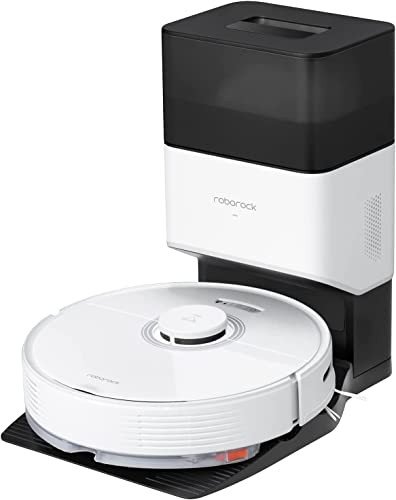Ten Robot Vacuum Cleaner Price Myths You Should Not Share On Twitter
Understanding Robot Vacuum Cleaner Prices: A Comprehensive Guide
Over the last few years, robot vacuum cleaners have changed the method individuals clean their homes. Their ease of usage, benefit, and advanced technology have actually made them significantly popular. Nevertheless, with a myriad of models and functions readily available, potential purchasers frequently find themselves asking an essential concern: What should I anticipate to pay for a robot vacuum cleaner? This article aims to clarify the costs connected with robot vacuum cleaners, aspects that affect their rates, and ideas for finding the right device for your budget.
The Price Range of Robot Vacuum Cleaners
Robot vacuum cleaners can differ widely in price. Here, we break down the typical price variety for different classifications:
Category
Price Range
Description
Entry-Level
₤ 100 – ₤ 250
Basic functions, ideal for small areas, minimal smart innovation.
Mid-Range
₤ 250 – ₤ 500
Boosted cleaning abilities, much better navigation, some smart functions.
High-End
₤ 500 – ₤ 1,000+
Advanced mapping, powerful suction, internet connectivity, and app integration.
Entry-Level Models
Inexpensive robot vacuums are perfect for those who require a fundamental cleaning tool without luxury features. They typically manage tough floorings well however may deal with carpets and are normally less resilient.
Mid-Range Models
These vacuums often come geared up with better suction power and more intelligent navigation systems, making them appropriate for larger homes with combined floor covering. Lots of designs in this variety offer Wi-Fi connection and smartphone control.
High-End Models
High-end robot vacuums are developed for severe cleaning lovers. They generally provide sophisticated mapping innovation, powerful suction, and integrated cameras for enhanced navigation. Additionally, numerous high-end models enable for vacuuming on a schedule and even have the ability to empty their dust bins automatically.
Factors Affecting Robot Vacuum Prices
Comprehending the factors that can influence the price of a robot vacuum can help consumers make more informed acquiring choices. The following list outlines some crucial features that can impact price:
Brand Reputation: Established brands typically carry a greater price tag due to their track record and reputable client assistance.
Cleaning Technology:
- Suction Power: More powerful models will be more costly.
- Navigation Systems: Advanced designs with better challenge detection and mapping capabilities cost more.
Smart Features: Models that provide connection to apps, voice control compatibility, and advanced scheduling choices tend to be priced higher.
Battery Life: Longer-lasting batteries generally lead to a greater price, as they permit the vacuum to tidy bigger areas without requiring to charge.
Dustbin Size: Larger dustbins can be more convenient for customers, promoting a higher price point.
Extra Features: Some vacuums use mopping abilities, self-cleaning functions, and high-efficiency filters, which can increase their price.
Budget vs. Features: What to Consider
When acquiring a robot vacuum, it's necessary to weigh your budget versus the functions you most desire. Here are numerous considerations to help you make a notified decision:
1. Evaluate Your Home's Needs
Size of Space: Larger homes may gain from advanced vacuums that can cover more ground without regular recharging.
Floor Types: If your home contains a mix of carpet and hard floorings, go with a vacuum designed for both.
2. Determine Desired Features
- Decide which features are necessary for you, such as scheduling, app connection, and cleaning modes.
3. Price vs. Durability
- While a higher investment can yield longer-lasting models, it's worth thinking about lower-cost choices if you're uncertain about long-term use.
Frequently Asked Questions (FAQs)
Q1: Are robot vacuums worth the investment?
A1: If you lead a hectic lifestyle or have mobility issues, a robot vacuum can save considerable time and effort in cleaning, making them a beneficial investment.
Q2: How frequently should I replace a robot vacuum?
A2: Depending on the design and use, a robot vacuum generally lasts in between 3 to 5 years. High-end designs might last longer with proper maintenance.
Q3: Can a robot vacuum entirely replace a traditional vacuum?
A3: While robot vacuums effectively handle day-to-day cleaning, they may not replace standard vacuums for deep cleaning, particularly in multi-level homes or areas needing substantial care.
Q4: What is the average lifespan of a robot vacuum?
A4: The life expectancy of robot vacuums differs by design, but most last in between 3-5 years with routine upkeep, like dustbin emptying and filter changes.
Q5: Do robot vacuums deal with carpets?
A5: Yes, but the efficiency will depend on the model. Higher-priced models usually have better suction power to clean carpets efficiently.
The marketplace for robot vacuum cleaners varies, with models to fit different budget plans and cleaning needs. Whether Best Robot Hoover are looking for a basic cleaning tool or an advanced gadget equipped with many smart features, understanding the price varieties and elements impacting expenses is vital. With careful factor to consider of specific needs and financial constraints, prospective buyers can discover a robot vacuum that will improve their cleaning regular and provide long-term complete satisfaction.
